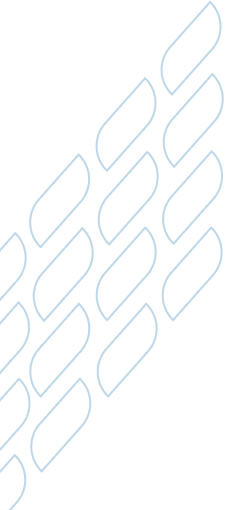
In the dynamic landscape of healthcare, where advancements in technology and patient care continually evolve, the role of training for clinicians is pivotal. In a compelling podcast discussion hosted by Mariah Muhammad for Becker’s Healthcare, Rachel Feinman, Vice President of Innovation at Tampa General Hospital (TGH), and Austin Smith, Director of Healthcare Alliance Development at Amplifire, delved into the transformative impact of advancing training methodologies for healthcare professionals. Here are three key takeaways from their enlightening conversation:
1. Build a Resilient Workforce Through Innovative Training Methodologies
A resilient healthcare workforce is fundamental to delivering consistent, high-quality care amidst evolving patient needs and healthcare challenges. “Looking at and reevaluating the way that we think about training is part of an even broader initiative and strategic goal around team member resiliency,” says Ms. Feinman. “Team members who are better trained feel more empowered to do their job.” Mr. Smith echoed these sentiments, highlighting Amplifire’s commitment to supporting healthcare organizations in cultivating a culture of innovative learning.
By facilitating ongoing education and professional development through accessible, engaging learning platforms, Amplifire contributes to workforce resilience by equipping clinicians with the skills and knowledge needed to confidently navigate complex healthcare environments. Modernized training accelerates the onboarding process by leveraging previous clinician experience, and saving time by not retraining individuals on knowledge they already have. This has been especially successful in onboarding to Electronic Health Records like Epic.
“We train and deploy at scale,” says Mr. Smith. Experienced clinicians might not need to sit through hours of classroom-based training, but instead can take an asynchronous Amplifire module to assess and solidify knowledge and get them to the floor in a fraction of the time.
2. Personalization and Customization Enhance Training Effectiveness
This personalized approach not only accelerates the onboarding process but aligns training content with the latest healthcare protocols and technologies, ensuring clinicians are well-prepared to deliver high-quality care through adaptive learning technologies that harness brain science-based methodologies to customize educational content for each learner.
Traditional training models in healthcare often follow a one-size-fits-all approach, where clinicians receive standardized education irrespective of their prior experience or learning style. “Like many things, COVID was the impetus for a lot of change. And I think that was the case around workforce training,” says Ms. Feinman. The shift towards remote and virtual training necessitated a reevaluation of training strategies. Instead of uniform classroom sessions, TGH embraced personalized training experiences tailored to individual learning needs.
Ms. Feinman emphasized that treating each clinician as a unique learner significantly enhances engagement and knowledge retention. By leveraging data insights and platforms like Amplifire, TGH now delivers targeted micro-learning modules that address specific needs identified through data analytics. “We have access to a lot of data,” Ms. Feinman continues. “Now we can target training down to the team member, down to the shift, or down to the unit that needs it.” This targeted approach not only streamlines training processes but produces behavior change, ensuring that clinicians are proficient and confident in applying their skills directly to patient care scenarios, without adding unnecessary burden.
3. Integration of Technology Drives Efficiency and Patient Outcomes
The integration of AI and personalized learning methodologies will play a pivotal role in shaping the future of healthcare training.
Ms. Feinman underscored TGH’s commitment to leveraging AI not as a replacement for human expertise but as a tool to augment clinician capabilities and streamline operational efficiencies. “Our goal at TGH is leveraging AI to help our team members focus on the aspects of their job that they need to feel better about the work that they do,” says Ms. Feinman. Specifically, she discussed examining the nurse manager role. “What we were asking of these nurse managers across systems is just too much.” Ms. Feinman states.
Reimagining the nurse manager role through technology and AI optimizes operational workflows and empowers clinicians to operate at the top of their licensure. By reducing administrative burdens and enhancing decision-making support, AI-enabled tools allow clinicians to focus more on patient care, thereby fostering a resilient and motivated workforce.
Additionally, innovative strategies such as virtual enablement on the inpatient side are showing success maximizing clinician talent and improving staff resiliency. “If our team members are able to effectively manage and address patients virtually, and they can increase the number of patients they’re able to serve by leveraging that technology, then it’s better for the team member and better for the patient,” says Ms. Feinman.
Mr. Smith highlighted how Amplifire’s AI capabilities facilitate rapid content development and deployment, significantly reducing the time and resources traditionally required for training. By automating routine tasks and enabling personalized learning pathways, Amplifire empowers healthcare organizations to scale their training initiatives without compromising individualized attention to learners.AI-enabled training not only enhances clinical proficiency but also plays a critical role in mitigating risks such as infection rates. By delivering targeted training modules based on real-time data analytics, healthcare systems can proactively address challenges like healthcare-associated infections, leading to improved patient safety and overall healthcare quality.
Amplifire and Tampa General Partnership Brings Innovation to Practice
“The partnership we have with Amplifire really exemplifies the reason we do this kind of innovation work,” says Ms. Feinman. “We are just scratching the surface on opportunities to collaborate across training and education,” says Mr. Smith, about the burgeoning partnership with TGH.
The insights shared underscore a transformative shift in healthcare training paradigms. By embracing personalized, technology-driven approaches to training, healthcare organizations like Tampa General Hospital are not only enhancing clinical proficiency but also fostering a resilient workforce capable of delivering exceptional patient care.
To listen to the full podcast by Becker’s Healthcare, click here.







